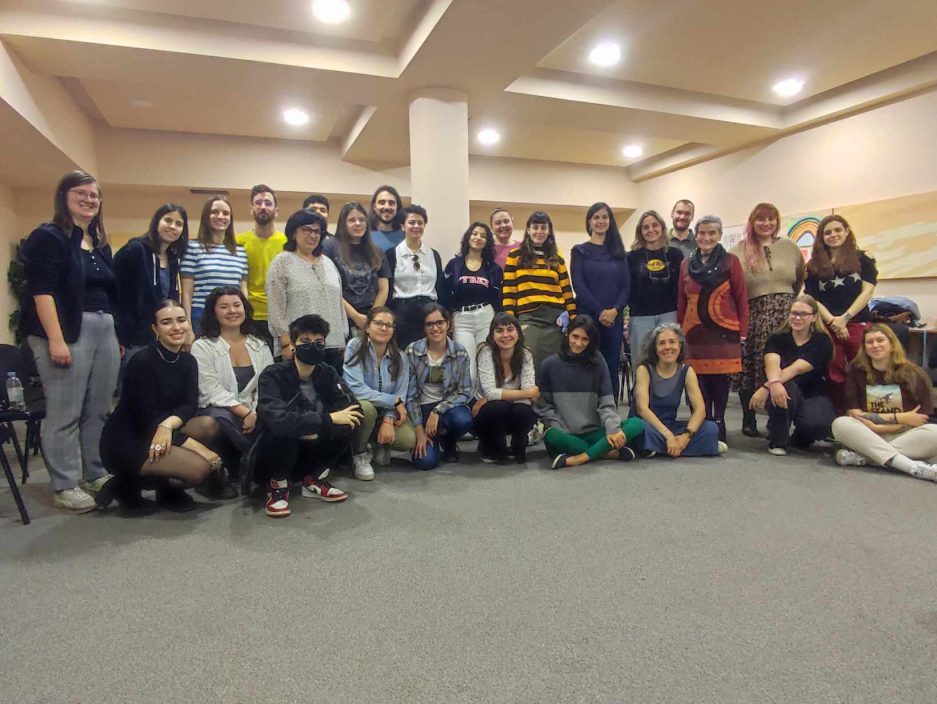“Female perspectives on democratization” training held in Sofia, Bulgaria

Documenta and its partners in the project “Female perspectives on the democratic transitions of the 1970s, 1980s, and 1990s” organized the “Female perspectives on democratization” training in Sofia, Bulgaria, from May 9 to 13, 2024.
Teachers and youth workers from Bulgaria, Croatia, Italy, and Spain gathered in Sofia to compare the perspectives of the democratization processes in different European countries: the transition from socialism to democracy in Bulgaria, the breakup of Yugoslavia and the democratic transition in Croatia and Slovenia, non-institutional democratization in Italy in the 1970s, characterized by the “strategy of tension”, and the Spanish transition to democracy after the regime of Francisco Franco.
During the training, we presented the educational materials created in the scope of the project: the podcast series “Female perspectives on democratization” and the toolkit with working methods and resources “Democratization processes in Europe: the female perspectives”.
The podcast series has a total of 17 episodes that promote resistance to totalitarian and authoritarian regimes and practices in different European countries and ensure the visibility of women’s involvement in democratic transitions. Several episodes provide insight into minor historical events at the local and community level related to democratization, while other episodes raise awareness of gender inequality in the teaching and understanding of history.
The main goal of the toolkit is to suggest to teachers and people who work with young people concrete methods for working on the topic of democratic transitions in Bulgaria, Croatia, Italy, Slovenia and Spain. Each of the chapters proposes one workshop dealing with a relevant topic for each country.
As part of the program in Sofia, the participants had the opportunity to try out some of the workshops offered in the toolkit and explored the historical context of the testimony in the podcast episodes through various creative methods. They also worked together on designing alternative ways to use podcasts in their work.
The training also provided insight into Bulgaria’s transition from socialism to democracy. The participants had the opportunity to explore Sofia and learn more about key events from the transition period.
Prof. Momchil Metodiev from the New Bulgarian University joined the training as a guest lecturer to present the historical context of the 1980s and 1990s in Bulgaria.
The participants also learned more about the first civil protests in the People’s Republic of Bulgaria – the environmental protests in 1987 and 1988 in the city of Ruse, that were organized by women and are often called ” the protests of mothers with strollers”. Two witnesses of the time, Veselina Antonova and prof. Penka Angelova, joined us in Sofia to talk to the participants and share their memories of that time.
The participants of the training also met two Bulgarian artists, Kalina Ivanova and Ana Ivanova, who explore the topic of “children of transition” in their works “Block 1989” and “Apartment 2007” (@slavki.prikazki).
The training is a part of the project “Female perspectives on the democratic transitions in the 1970s, 1980s and 1990s”.
The project is co-financed by the European Union.










